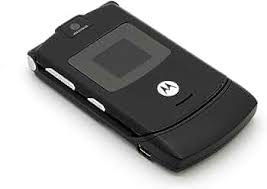The Legacy of BlackBerry Phones
BlackBerry phones, once a symbol of productivity and communication efficiency, have left a lasting impact on the mobile phone industry. Known for their iconic physical keyboards and secure messaging services, BlackBerry devices were widely popular among business professionals and tech enthusiasts.
One of the key features that set BlackBerry phones apart was their secure email capabilities. The devices were equipped with BlackBerry Messenger (BBM), a proprietary instant messaging service that allowed users to communicate securely within closed networks. This feature made BlackBerry phones a preferred choice for corporate users who prioritised data security.
Another defining characteristic of BlackBerry phones was their physical QWERTY keyboards. The tactile feedback provided by these keyboards offered users a comfortable typing experience, making it easier to compose emails and messages on the go. The distinctive click-clack sound of typing on a BlackBerry keyboard became synonymous with productivity.
BlackBerry’s operating system, known as BlackBerry OS, was optimised for efficient multitasking and communication. Users could seamlessly switch between applications and manage their tasks with ease. Additionally, the integration of productivity tools such as calendars, notes, and contacts made BlackBerry devices an all-in-one solution for professionals.
Despite its initial success, BlackBerry faced stiff competition from touchscreen smartphones running iOS and Android operating systems. The shift towards app-centric ecosystems and larger touchscreen displays posed challenges for BlackBerry’s traditional approach to mobile communication.
In an attempt to regain market share, BlackBerry transitioned to Android-based smartphones with models like the BlackBerry Priv and KEY series. These devices combined the security features of BlackBerry with the flexibility of the Android platform, catering to both enterprise users and consumers looking for a secure mobile experience.
Today, while BlackBerry may no longer dominate the smartphone market as it once did, its legacy lives on in the evolution of mobile technology. The focus on data security, efficient communication tools, and productivity features that defined BlackBerry phones continues to influence modern smartphones and shape the way we interact in a digital world.
Top 5 Advantages of BlackBerry Phones: Security, Productivity, and Legacy Features
- 1. Secure messaging services like BlackBerry Messenger (BBM) for enhanced data security.
- 2. Tactile physical QWERTY keyboards providing a comfortable typing experience.
- 3. Efficient multitasking capabilities and seamless task management.
- 4. Integration of productivity tools such as calendars, notes, and contacts for enhanced productivity.
- 5. Legacy features that influenced modern smartphones in terms of data security and communication efficiency.
Challenges of Blackberry Phones: Limited Apps, Slower Tech Adoption, and Physical Keyboards
- Limited app ecosystem compared to iOS and Android platforms.
- Relatively slower adoption of new technology trends and features.
- Physical keyboards may not appeal to users accustomed to touchscreen interfaces.
1. Secure messaging services like BlackBerry Messenger (BBM) for enhanced data security.
BlackBerry phones were renowned for their secure messaging services, notably BlackBerry Messenger (BBM), which played a crucial role in enhancing data security for users. BBM provided a closed network for communication, ensuring that messages and data exchanged between users were encrypted and protected from external threats. This feature made BlackBerry phones a trusted choice among business professionals and individuals who prioritised the confidentiality of their communications. The robust security measures implemented in BBM set a standard for secure messaging services in the mobile industry, highlighting BlackBerry’s commitment to safeguarding user privacy and data integrity.
2. Tactile physical QWERTY keyboards providing a comfortable typing experience.
One of the standout advantages of BlackBerry phones is their tactile physical QWERTY keyboards, which offer users a comfortable and responsive typing experience. The presence of physical keys allows for precise input and a satisfying tactile feedback that is often preferred by individuals who do a lot of text-based communication on their smartphones. The ergonomic design of the keyboard makes it easier to type accurately and quickly, enhancing productivity for users who value efficient messaging and email composition on the go.
3. Efficient multitasking capabilities and seamless task management.
BlackBerry phones were renowned for their efficient multitasking capabilities and seamless task management, setting them apart in the mobile phone market. The BlackBerry operating system was designed to allow users to effortlessly switch between applications, manage tasks, and stay organised with ease. This feature was particularly beneficial for professionals who needed to juggle multiple responsibilities on the go, making BlackBerry phones a reliable tool for boosting productivity and staying on top of various tasks simultaneously.
4. Integration of productivity tools such as calendars, notes, and contacts for enhanced productivity.
The integration of productivity tools such as calendars, notes, and contacts on BlackBerry phones was a significant advantage that enhanced users’ productivity. By having these essential tools readily accessible on their devices, users could efficiently manage their schedules, jot down important information, and stay connected with their contacts seamlessly. This integrated approach not only streamlined daily tasks but also promoted better organisation and time management, making BlackBerry phones a favoured choice for professionals seeking to boost their productivity on the go.
5. Legacy features that influenced modern smartphones in terms of data security and communication efficiency.
The legacy features of BlackBerry phones have had a profound impact on modern smartphones, particularly in the realms of data security and communication efficiency. BlackBerry’s emphasis on secure messaging services and encrypted communication paved the way for heightened awareness and implementation of data security measures in smartphone technology. The integration of productivity tools and multitasking capabilities in BlackBerry devices set a standard for efficient communication that continues to influence the design and functionality of contemporary smartphones. The enduring legacy of BlackBerry’s focus on data security and communication efficiency has undoubtedly shaped the evolution of mobile technology, ensuring that users can interact with confidence in an increasingly connected world.
Limited app ecosystem compared to iOS and Android platforms.
One notable drawback of BlackBerry phones was their limited app ecosystem in comparison to the vast offerings available on iOS and Android platforms. Due to the proprietary nature of BlackBerry’s operating system, developers faced challenges in creating and optimising apps for BlackBerry devices. This limitation meant that BlackBerry users had access to a smaller selection of apps, especially when compared to the extensive libraries found on iOS App Store and Google Play Store. The lack of popular applications and games on the BlackBerry platform hindered user experience and contributed to the decline in BlackBerry’s market competitiveness as consumers increasingly sought diverse app options for their smartphones.
Relatively slower adoption of new technology trends and features.
One notable drawback of BlackBerry phones was their relatively slower adoption of new technology trends and features compared to competitors. While BlackBerry devices excelled in providing secure communication and efficient productivity tools, they often lagged behind in implementing the latest advancements in mobile technology. This slower pace of innovation meant that users might miss out on cutting-edge features and functionalities that were becoming standard in other smartphone brands, ultimately limiting the overall user experience and relevance of BlackBerry phones in an ever-evolving tech landscape.
Physical keyboards may not appeal to users accustomed to touchscreen interfaces.
For users accustomed to touchscreen interfaces, the presence of physical keyboards on BlackBerry phones may pose a significant drawback. The shift towards touchscreen devices in the mobile industry has led to an expectation of seamless and intuitive touch-based interactions. The tactile feedback and familiarity of physical keyboards on BlackBerry phones may not align with the preferences of users who have grown accustomed to the convenience and versatility of touchscreen typing. This divergence in user interface preferences highlights a key limitation of BlackBerry phones in catering to a broader audience that values touchscreen functionality over traditional physical keyboards.




